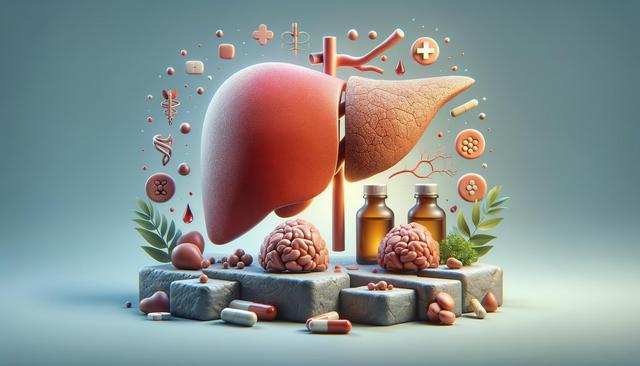What Is Fatty Liver Disease?
Fatty liver disease, also known as hepatic steatosis, occurs when excess fat builds up in the liver. This condition is categorized into two main types: alcoholic fatty liver disease (AFLD), caused by excessive alcohol intake, and non-alcoholic fatty liver disease (NAFLD), which develops in people who drink little or no alcohol. NAFLD is especially prevalent in individuals with obesity, type 2 diabetes, or metabolic syndrome. While the early stages may not present symptoms, untreated fatty liver can progress to more serious conditions like non-alcoholic steatohepatitis (NASH), cirrhosis, or liver failure.
Understanding the causes and risk factors is crucial for effective management. These include:
- Obesity and overweight
- High cholesterol or triglyceride levels
- Insulin resistance or type 2 diabetes
- Poor dietary habits and sedentary lifestyle
- Genetic predisposition
An accurate diagnosis usually involves blood tests, imaging studies like ultrasound, and sometimes a liver biopsy. Early detection improves the outlook significantly.
Lifestyle and Dietary Changes
Modifying lifestyle and diet is the cornerstone of fatty liver treatment. Weight loss through a combination of healthy eating and regular physical activity has shown to be effective in reducing liver fat. Even a modest weight loss of 5-10% can significantly improve liver health and reduce inflammation.
Key dietary strategies include:
- Reducing intake of saturated fats and trans fats
- Eliminating sugary beverages and refined carbohydrates
- Increasing consumption of vegetables, fruits, whole grains, and lean proteins
- Incorporating foods with anti-inflammatory properties, such as fatty fish and nuts
Physical activity is equally important. Engaging in moderate-intensity exercise, such as brisk walking or cycling, for at least 150 minutes per week can help reduce liver fat and improve insulin sensitivity. Consistency is key, and combining aerobic workouts with resistance training may offer additional benefits.
Medical Interventions and Monitoring
While lifestyle changes remain the primary approach, some individuals may require medical treatment, particularly if the disease has progressed or if other health conditions are present. There are currently no medications specifically approved for treating NAFLD or NASH, but doctors might prescribe drugs to manage associated conditions like high cholesterol, diabetes, or obesity.
Common medications that may be used include:
- Insulin sensitizers for diabetes management
- Lipid-lowering agents
- Vitamin E supplements in specific cases under medical supervision
Regular monitoring is essential. Follow-up visits often include liver function tests, imaging, and evaluation of metabolic parameters. This helps track progress, adjust treatment plans, and prevent complications.
Addressing Underlying Health Issues
Fatty liver is often interconnected with other health issues, and a holistic approach is necessary for effective management. For example, controlling blood sugar levels in diabetic patients can greatly influence liver health. Similarly, managing conditions like high blood pressure and high cholesterol helps reduce the overall risk of cardiovascular disease, which is often elevated in individuals with fatty liver.
Additional supportive strategies include:
- Quitting smoking to reduce cardiovascular risk
- Limiting or eliminating alcohol intake
- Managing stress through mindfulness, therapy, or relaxation techniques
In some cases, referral to a specialist such as a hepatologist or endocrinologist may be necessary. A multidisciplinary team can provide a more comprehensive treatment plan tailored to the individual’s needs.
Prevention and Long-Term Management
Preventing fatty liver or avoiding its progression requires long-term commitment to healthy habits. Those with risk factors should consider routine liver screenings as part of their regular health check-ups. Education plays a vital role—understanding how daily choices affect liver health can empower individuals to make informed decisions.
Preventive measures include:
- Maintaining a healthy body weight
- Eating a balanced diet rich in fiber and low in processed foods
- Staying physically active consistently
- Limiting alcohol and avoiding unnecessary medications that may harm the liver
Staying informed and proactive is key. Support groups and educational resources can provide motivation and practical tips for those navigating lifestyle changes. Over time, these efforts can lead to significant improvements in liver health and overall well-being.


